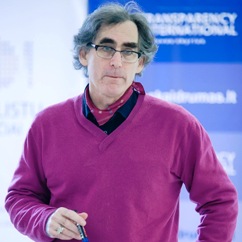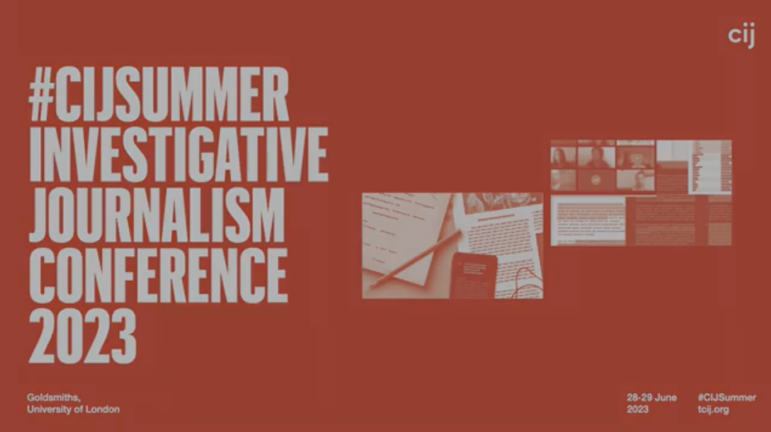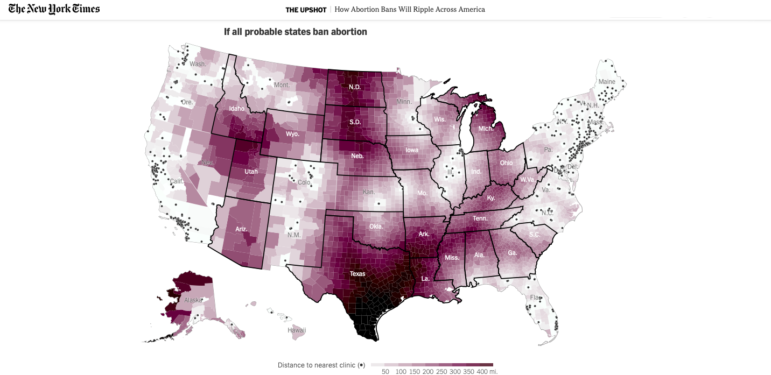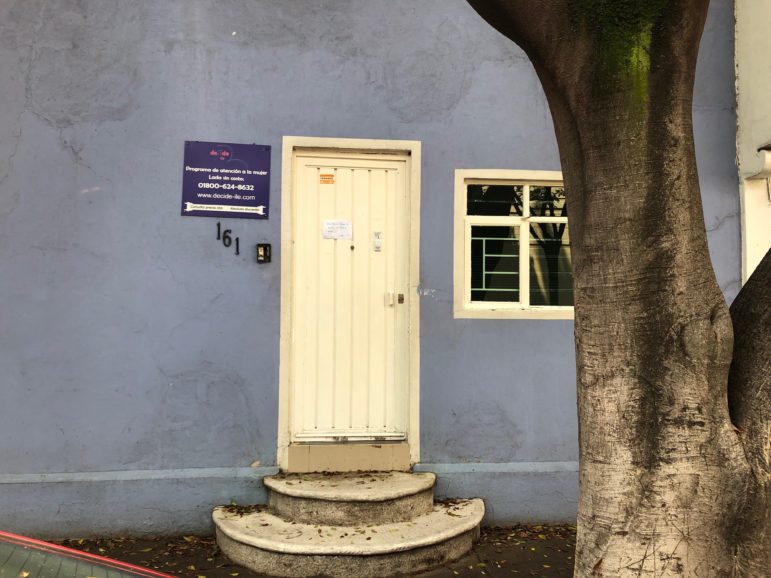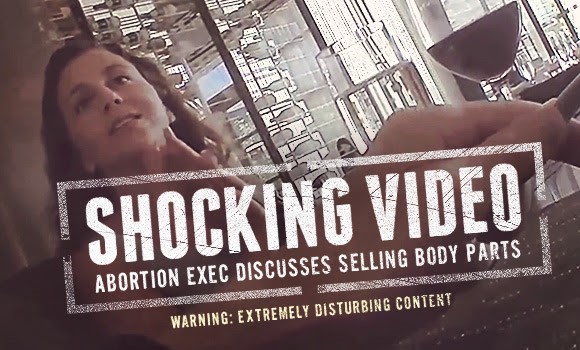

Why David Daleiden Is Not An Investigative Reporter
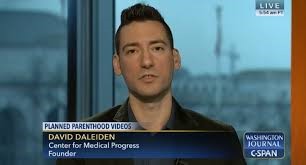
Daleiden: Same techniques as investigative reporters?
The American conservative movement is redefining the practice of investigative journalism to support its objectives. The movement’s key tool is undercover work, penetrating liberal organizations to collect and report embarrassing material, then feeding it to social and political adversaries of those organizations. Thus self-styled “guerilla” journalist James O’Keefe pretended to be a rich Arab donor to compromise a sales executive of National Public Radio, and played a pimp who sought subsidies for prostitution from a hapless federal agency. And thus self-described “investigative journalist” David R. Daleiden sought to demonstrate that Planned Parenthood, the leading non-profit provider of health services to women in the United States, illegally and largely profits from fetal tissues harvested through abortions.
In both cases, right-wing politicians in the U.S. seized on these “investigations” to attack funding for agencies that serve the poor. Meanwhile, these methods are undermining the foundations of investigative reporting, and not because it’s the Right doing the investigating.
Viewing Daleiden’s videos, available on his website, generates a feeling close to nausea in anyone who cares about our profession and its social license to operate – the legitimacy that makes people want to talk to us and give us documents. He entered Planned Parenthood as the “founder” of a front firm, Biomax, supposedly engaged in research that requires fetal tissue. He approached Planned Parenthood officials and physicians and offered to buy baby parts, while secretly filming them, inviting them to say things that sound terrible out of context. He then edited the footage to remove or minimize context that countered his hypothesis that Planned Parenthood is “a criminal organization from the top down,” as an expert report commissioned by Planned Parenthood shows.
One example that I found myself: He headlined his first attack video, “Planned Parenthood Houston Admits Accounting Gimmicks Hide Baby Parts Sales, Invoices Charge Thousands of Dollars.” The line item he refers to covers dozens of patient consent fees, for parents who want their abortions to serve for medical research. The consent is a legal requirement and the fees cover costs; they are not a profit driver for Planned Parenthood.
Daleiden also claims – on his website, in interviews and at anti-abortion conferences – that he “uses the same undercover techniques that investigative journalists have used for decades.” In fact, he doesn’t.
It’s true that investigative journalists sometimes lie to sources, and sometimes pretend to be someone else. But we don’t do it quite the way Daleiden does. Daleiden says he respects “all applicable laws.” Unlike him, we don’t decide what laws are applicable. American journalists don’t believe for a second that our jobs give us rights that other citizens don’t have, for the simple reason that U.S. courts have consistently told us the contrary (except in granting us an exceptional right to access, on condition we identify ourselves as reporters). If we break the law – say, by tampering with a government record (a driver’s license) “with the intent to defraud and harm another,” a felony for which Daleiden was recently indicted by a grand jury in Texas – we can be prosecuted. The only defense is to show that we acted in the public interest. Telling true stories that powerful people want to keep secret may well be in the public interest. Telling half-truths as if they were facts and violating the privacy of people engaged in lawful activity is in no one’s interest.
Undercover work is easily misused by lazy reporters or neophytes. In their work, the “adventure” of penetrating an exotic or merely private environment distracts the audience from the holes in the story. The adventure becomes its own justification, an exercise in cheap thrills. The reporter becomes the story, and his obsessions become “facts.” Thus Daleiden’s techniques border on the obscene, as he repeatedly makes grisly jokes about body parts and insistent references to prices.
The right approach is not to go undercover in the first place unless revealing our true identities would put us in physical danger or make an important story disappear. Planned Parenthood isn’t going away; there are numerous open ways to document its activities. Daleiden may think Planned Parenthood kills babies, but there was no risk whatsoever that its managers would have killed him, or even slapped him, if he approached them openly. Using undercover techniques in such a case amounts to treating trusting, law-abiding citizens like vicious criminals, to be tapped and taped without their knowledge or approval. In libel trials such methods are considered strong evidence of bad faith, and can lead to punitive damages. Mr. Daleiden may want to ask James O’Keefe about that; O’Keefe paid $100,000 to settle a case brought by a man whom he portrayed as sympathetic to a “pimp” (who was O’Keefe in disguise).
A real investigative journalist, let alone a plain, honest reporter, is bound to take all the facts of a story into account whether we like them or not. Daleiden disagrees: “In normal every[day] life, we don’t always communicate the truth by a simple, one equals one, mathematical way of speaking,” he told an evangelical conference in late January. “We often use poetry and metaphor and even pretext in order to communicate really important truth in a more clear way.” For example, Daleiden used a stock image of a stillborn baby to suggest that Planned Parenthood harvests fetal tissues for sale. One wonders if he ever heard of Herbert vs. Lando, a landmark 1979 U.S. Supreme Court ruling that granted plaintiffs in libel cases access to all the material used in creating an investigative report, including memos, notes, drafts, and transcripts. Planned Parenthood’s lawyers will have a field day documenting Daleiden’s editorial choices.
Daleiden claims to serve “really important truth,” and that’s a subjective judgment. I’ve always argued that investigative reporting serves the subjective goal of reform, but not like Daleiden. Certainly, investigative journalists are not objective, if objectivity means remaining distant from the outcome of our work. We’d like to make the world less chaotic and ugly. But we subjugate that desire to the ensemble of facts of a given situation, because change that is built on anything but reality can only create more chaos. That rule applies equally to mainstream media or the emerging wave of stakeholder-driven media, like Daleiden’s website.
Chaos and horror are exactly what resulted. U.S. presidential candidates Carly Fiorina and Ted Cruz and various other Republican politicians insistently cite Daleiden’s fictions about Planned Parenthood’s traffic in “baby parts” as if they were true, even after government investigators repeatedly showed they were false. John Dear, who killed two people in a Planned Parenthood center in Colorado Springs last November, likewise raved about “baby parts.” Mother Jones reports that “harassment, threats, and attacks against abortion providers surged nine-fold after the release of [Daleiden’s] first video in July.” One can search the history of investigative journalism and find numerous stories that saved someone’s life, or cost a corrupt official his job. I know of no professionally done story that designated people as fit for harassing and attacking.

Using poetry and pretext? Or hiding and spinning facts?
Daleiden promises to “contest any attempts to suppress our First Amendment rights to free speech or silence the freedom of the citizen press.” In effect, he claims the right to identify people he doesn’t like as dangerous criminals on the basis of his personal values, and he calls it free speech. Maybe, but that doesn’t make it investigative journalism. He now faces a Planned Parenthood lawsuit that accuses him of running a “complex criminal enterprise” that included “violating the Racketeer Influenced and Corrupt Organization Act, wire fraud [and] mail fraud” – all grave offenses – as well as “invasion of privacy, illegal secret recording and trespassing.” Daleiden has thus upped the risks facing legitimate journalists who use undercover methods, or who even doorstop a source. If he gets nailed on these charges, they will be used again to harass investigative reporters and publishers.
That is not a reason to let Daleiden off the hook, but it is certainly a reason to be loud and clear about the meaning and methods of our work. Investigative journalism is not “a creative way of communicating and speaking,” as Daleiden puts it, if that means hiding and spinning facts because you don’t find the real ones scandalous enough. It is not about pretending to be someone else so you can destroy the careers of trusting people engaged in lawful activity. It is about making the world a place where documented truth matters, as a process and an outcome. Calling Daleiden and similar undercover agents investigative journalists is a grotesque mistake or an unspeakable lie. They are tricksters and propagandists, and they are using our brand for cover, at our risk as well as theirs.
Mark Lee Hunter, based in Paris, is an adjunct professor at INSEAD. He is the author of Story-Based Inquiry: A Manual for Investigative Journalists (UNESCO 2009) and Un Américain au Front: Enquête au sein du Front National (Paris: Stock, 1998) and a founding member of the Global Investigative Journalism Network.





